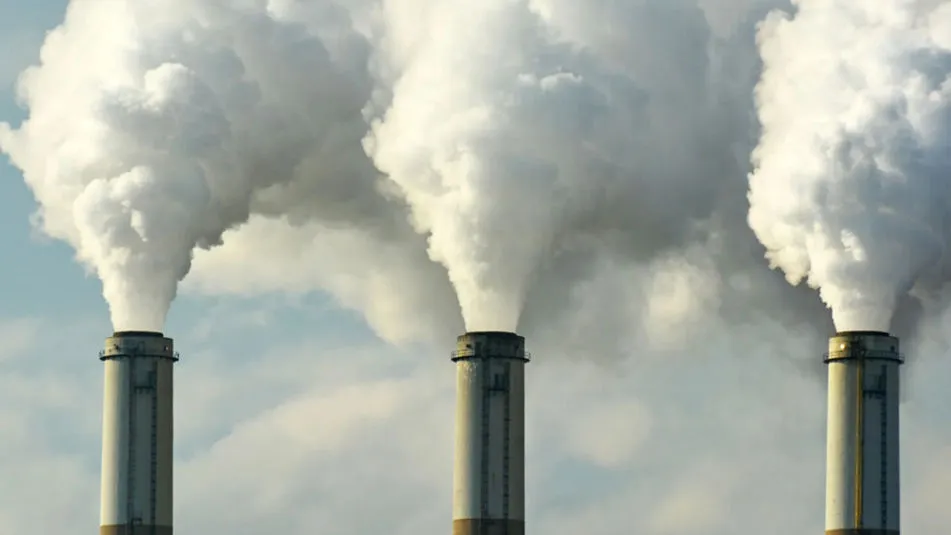A new analysis has revealed that just 36 fossil fuel companies were responsible for half of the world’s carbon emissions in 2023. Researchers argue that this data strengthens the case for holding these corporations accountable for their role in climate change. Previous versions of this annual report have even been used in legal cases against fossil fuel firms and investors.
Major Contributors to Carbon Emissions
The report identifies key contributors, including Saudi Aramco, Coal India, ExxonMobil, and Shell. These companies produced coal, oil, and gas that resulted in more than 20 billion tonnes of CO2 emissions last year. If Saudi Aramco were a country, it would rank as the fourth-largest polluter, trailing only China, the United States, and India. ExxonMobil’s emissions match those of Germany, the ninth-largest polluter globally.
Urgent Need to Cut Emissions
According to climate experts, global emissions must decrease by 45% by 2030 to keep global temperature rise within the 1.5C target set by international agreements. However, emissions continue to climb, intensifying extreme weather events that threaten lives and economies worldwide. The International Energy Agency warns that any new fossil fuel projects initiated after 2021 contradict the goal of achieving net-zero emissions by 2050. Despite this warning, most of the 169 companies in the Carbon Majors database increased their emissions in 2023. That year also recorded the highest global temperatures ever observed.
No Plans to Reduce Fossil Fuel Dependency
Christiana Figueres, the UN’s former climate chief, criticized these companies for maintaining fossil fuel dependency. “The science is clear: we cannot move backwards to more fossil fuels and more extraction,” she said. “Instead, we must move forward to the many possibilities of a decarbonized economic system that works for people and the planet.”
InfluenceMap’s Emmett Connaire, who worked on the report, emphasized the responsibility of these corporations. “Despite global climate commitments, a small group of the world’s largest fossil fuel producers are significantly increasing production and emissions. The research highlights the disproportionate impact these companies have on the climate crisis and supports efforts to enforce corporate responsibility,” he said.
Legal and Regulatory Challenges
Several fossil fuel companies, including Saudi Aramco, ExxonMobil, Chevron, Shell, and BP, did not respond to requests for comment. However, the Carbon Majors data has already influenced legal cases. The findings have been used to support laws in New York and Vermont that seek financial compensation from fossil fuel companies for climate-related damages. Additionally, legal groups have cited this data as potential evidence for criminal charges against fossil fuel executives. The information has also appeared in regulatory complaints, such as ClientEarth’s case against BlackRock for allegedly misleading investors.
Emissions from Fossil Fuels and Cement Production
The Carbon Majors report calculates emissions from 169 companies producing coal, oil, gas, and cement. Cement production alone contributed to a 6.5% rise in emissions in 2023. Among the 36 highest-emitting companies, 25 are state-owned. Ten of these operate in China, the world’s largest polluting nation. In 2023, coal accounted for 41% of emissions, oil 32%, gas 23%, and cement 4%.
Historical Impact of Fossil Fuel Companies
The dataset also tracks emissions from 1854 to 2023. It shows that 180 companies—11 of which no longer exist—are responsible for two-thirds of carbon emissions since the Industrial Revolution.
Kumi Naidoo, president of the Fossil Fuel Non-Proliferation Treaty Initiative, urged governments to act decisively. “We are living at a critical moment in human history. It is essential that governments step up and use their authority to end the root cause of the crisis we find ourselves in: the expansion of fossil fuels.”
The Road Ahead
As climate concerns grow, the report underscores the need for urgent action. Governments, regulatory bodies, and activists continue to push for policies that curb emissions and transition the world toward cleaner energy sources. However, without significant policy shifts and corporate accountability, emissions will likely continue to rise, putting the planet at greater risk.























